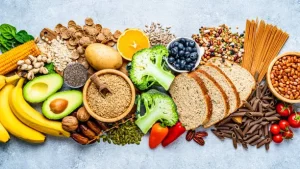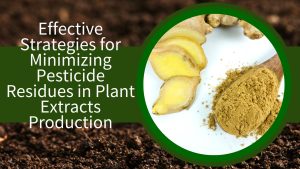Luteolin is a natural flavonoid compound, which was originally isolated from the branches, leaves, and stems of R. odorata L., a genus of Luteolin (Reseda) in the family Resedaceae.
Peanut hulls are rich in lignans and are one of the most important sources of lignans, and research related to peanut lignans has been carried out in many countries. Peanut shells are one of the waste products of peanuts, and the development and utilization of natural flavonoid compounds such as luteolin in peanut shells can improve the comprehensive utilization value of peanuts.
Luteolin is a natural flavonoid compound that exists in a variety of plants. It has a variety of pharmacological activities, such as anti-inflammatory, anti-allergic, anti-uric acid, anti-tumor, anti-bacterial, anti-virus, etc. It is mainly used clinically for cough, expectorant, anti-inflammatory, lowering uric acid, treatment of cardiovascular diseases, treatment of “amyotrophic lateral sclerosis”, SARS, hepatitis, etc.
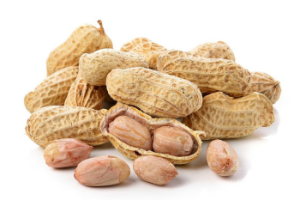
Benefits of luteolin:
Antioxidant effect
Free radicals are closely related to many diseases of life phenomena, such as cell aging, cancer and atherosclerosis, thrombosis, etc. The free radicals of living organisms come from two sources, one of which is endogenous, i.e. mainly several free radicals related to oxygen metabolism, such as: O2-, OH-, RCOO-, etc.; the other is exogenous, mainly inhaled from the polluted atmosphere and smoke, such as: O3-, NO2-, etc. O3- , NO2- and so on.
There are many free radical scavenging and inhibiting substances in the body, such as superoxide dismutase (SOD), catalase (CTA), peroxidase and glutathione peptidase (GSH-PX), which maintain the relative balance of free radical generation and elimination in the body. In contrast, flavonoids such as luteolin can have the role of free radical scavengers, who mainly react with free radicals through phenolic hydroxyl groups to generate more stable semi-roll radicals, thus terminating free radical chain reactions.
The chemical analysis study by standard procedure showed that luteolin at equimolar concentrations had the strongest antioxidant activity compared to quercetin and capsaicin.The results of TBA rapid assay showed that luteolin showed good antioxidant activity in sesame oil with an effective mass fraction of 0.02%, and at this mass fraction, luteolin had similar antioxidant effect to BHT in sesame oil and lard, and in The antioxidant ability of lignan in lard was stronger than that of tea polyphenols.
Bacteria inhibiting effect
Certain concentrations of lignocaine can inhibit the growth of Staphylococcus, Bacillus subtilis, Brewer’s yeast and Escherichia coli, and also have inhibitory effects on Catarrhella, Candida albicans and Aspergillus, which can be used as food preservative and preservative, such as extending the shelf life of moon cakes and peach puffs, and inhibiting the deterioration of foods containing fats and oils.
The antimicrobial activity of the ethanol extract of peanut shells was significant for the inhibition of 10 common contaminating bacteria and food poisoning bacteria in food, and its antimicrobial activity increased with the increase of its mass fraction, and the lowest inhibition mass fraction for bacteria and fungi was 0.028% and 0.05%, respectively. The antimicrobial activity was thermally stable, tolerated high temperature and short heat treatment, and had antimicrobial activity in the range of p H5-9.
HerbMountain researchers isolated luteolin from peanut shells and identified three flavonoids, including luteolin, as the antimicrobial components of peanut shells, suggesting that peanut shells have the potential for development as natural preservatives for food.
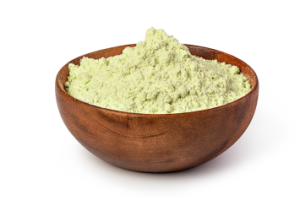
Anti-inflammatory effect
The occurrence of inflammation is closely related to T cells, B cells, NK cells, macrophages, etc. Flavonoids such as luteolin mainly work by affecting the secretion process of cells, mitotic cell interactions, and reducing the production of killer T cells.
Antitumor effects
The effect of luteolin to induce apoptosis in tumor cells is mainly achieved by targeting the regulation of signal transduction, gene expression, enzyme activation or inhibition in cell growth, with a broad anti-cancer spectrum. The anti-tumor mechanism of luteolin can directly act on tumor cells to interfere with cell metabolism, inhibit cell growth and induce or sensitize apoptosis; it can also play an anti-tumor role by enhancing the immune function of the body, which is a very promising potential anti-tumor drug.
Lowering blood lipids and cholesterol and improving immune function
The results of pharmacological and clinical trials show that luteolin has the pharmacological effects of lowering blood lipids and cholesterol, lowering blood pressure and immune regulation in both directions.
Pro-coagulant effect
The preliminary investigation on the in vitro procoagulant effect of lignocaine, the main chemical constituent of Cynaris sylvestris, showed that lignocaine has a good procoagulant effect.
Anti-allergic effect
luteolin can inhibit the production of mast cells of immunoglobulin, has the effect of treating asthma, can reduce bronchitis, and can be used to treat dry itchy skin
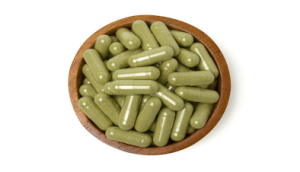
Side effects of luteolin.
Although luteolin has many nutritional effects, but there are still certain side effects. People taking the process, can not be used with a piece of antibiotics, because luteolin has anti-allergic, but has a certain degree of irritation, too much dosage is likely to cause bronchial asthma disease and acute pharyngitis, etc.

